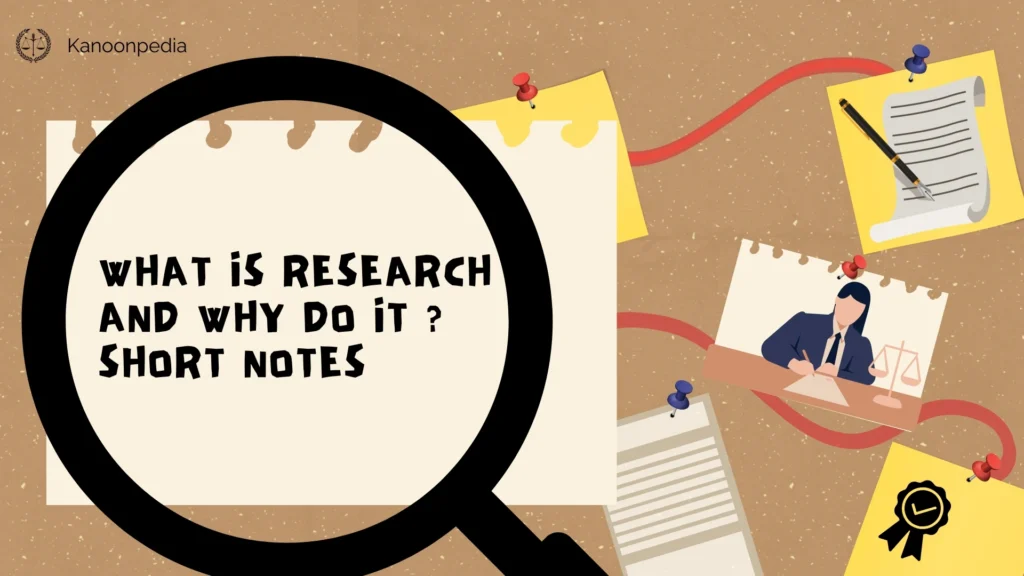- While answering via What is Research and Why Do It ? short notes the first question arises in the minds that what is Research, Research means collecting information to answer a question or solve a problem.
- We all do informal research every day, but formal research is more organized and follows certain rules.
- Research is important because it helps us understand the world, remember what we learn, and see things from different perspectives.

What is Research and Why Do It ? short notes
Table of Contents
Why Write About Research?
- Writing helps you clarify your own thinking.
- It allows you to share your findings with others.
- Writing formally (like a research paper) teaches you new ways to think and communicate.
- Uses of research is not limited to just Educational it encompasses , Healthcare and Medical Advances, Environmental Protection and Sustainability, Economic Development and Job Creation, Education and Knowledge Advancement, Addressing Challenges and Ethical Considerations etc
The Steps of Research
Key Concepts of What is Research and Why Do It ? short notes Explained Simply
- Research as Problem-Solving: Research is about finding answers to real questions or problems, not just collecting facts.
- Argument is Central: Good research is not just about gathering information, but about making a clear argument supported by evidence.
- Reader Awareness: Think about what your reader knows, what they need to know, and what questions or objections they might have.
- Ethics and Credibility: Always be honest in your work. Cite sources properly and do not misrepresent information.
How to Turn a Topic into a Research Problem
- Start broad, then narrow your focus to something specific and manageable.
- Ask questions about your topic’s history, structure, and importance.
- Always ask, “So what?”—why does this question matter to others, not just to you?
- Refine your question as you learn more. Research is not a straight line; you may need to adjust your question as you go.
Types of Sources
- Primary Sources: Original materials like data, documents, or direct observations.
- Secondary Sources: Analyses, interpretations, or reviews of primary sources.
- Tertiary Sources: General summaries, like encyclopedias or textbooks. These are good for background but not for in-depth arguments.
Parts of a Research Argument
- Claim: What you want the reader to believe.
- Reasons: Why the claim should be accepted.
- Evidence: Facts, data, or examples that support your reasons.
- Warrants: The logical connection between your reasons and your claim.
- Acknowledgment and Response: Address objections and other viewpoints to make your argument stronger and more trustworthy.
Writing and Revising
- Plan your writing before you start.
- Organize your argument clearly: introduction, body, conclusion.
- Use evidence effectively and explain how it supports your points.
- Revise for clarity, style, and to make sure your writing is easy to understand.
Ethics in Research
- Be honest and fair.
- Do not plagiarize—always give credit to others.
- Present your evidence truthfully, even if it does not support your original idea.
Why This Matters
- Research is not just about finding answers, but about joining a conversation with others who care about your topic.
- Writing up your research helps you and others learn and grow.
- The skills you develop doing research—critical thinking, organizing information, making arguments—are useful in many parts of life, not just in school.
The Craft of Research is widely used in colleges because it makes the research process clear, logical, and manageable for everyone, whether you are a beginner or have experience.
[…] What is Research and Why Do It ? short notes here […]
Thanks for sharing. I read many of your blog posts, cool, your blog is very good.